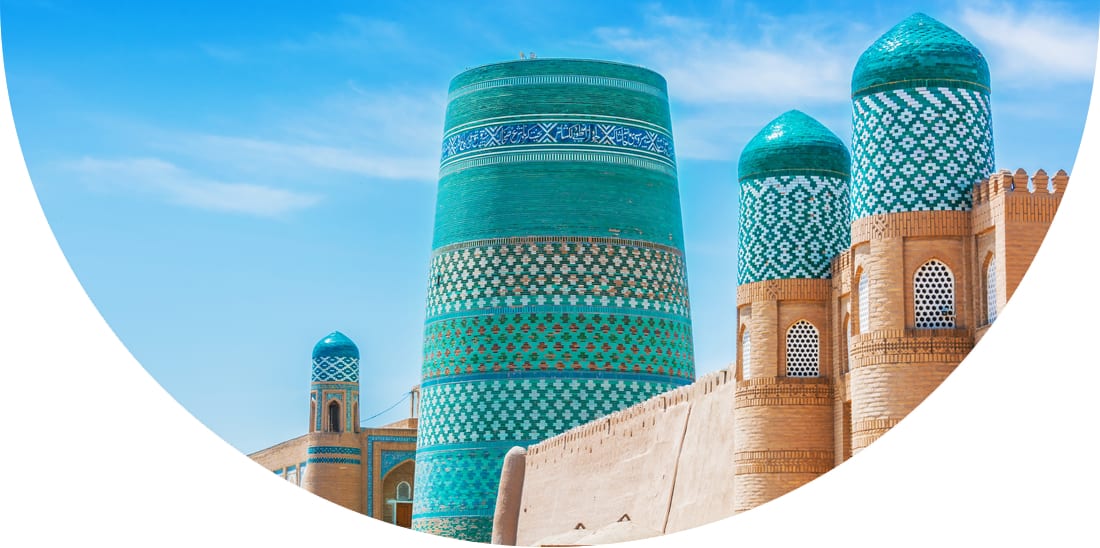Crimean-Congo haemorrhagic fever (CCHF) is primarily spread to humans either by infected ticks or animal blood. Human-to-human transmission can also occur resulting from close contact with the blood, organs or other bodily fluids of an infected person.


Travel Vaccinations for Uzbekistan
Recommended Vaccines for Uzbekistan
The level of protection needed depends on your medical history and travel itinerary. Book now to get a personalised recommendation from our specialist travel nurses. The consultation costs £20 plus any vaccines you decide to take.
Flexible appointments with no upfront payment
Book Now
Destination Information for Uzbekistan
Uzbekistan gained its independence in 1991 after the collapse of the Soviet Union, but the country has a rich history that extends way before this. Uzbekistan is home to the historic town of Samarkand, which was once a crossroad on the famous trading route, the Silk Road. It was conquered by Alexander the Great and today the whole city is an UNESCO World Heritage Site.
Tashkent is the capital of Uzbekistan and where the vast majority of visitors enter the country. This modern city juxtaposes contemporary business with a traditional Uzbek way of life, with good opportunities for shopping, eating out and learning more about the country in museums.
The Ugam-Chatkal National Park is not far away, offering hiking, rafting and skiing in one of the oldest nature reserves in the country. Here you’ll also see bears, wolves, snow leopards, wild boars, golden eagles and a plethora of other fascinating wildlife.
Bukhara is another important city along the Silk Road and today it is also known as the ‘Pillar of Religion’. This legendary site is a must-see for all visitors to Uzbekistan, along with its monuments, architecture and other splendid significant Islamic and Central Asian sites.
Infections and Outbreaks frequently change from country to country and by attending our clinics you will be given the most up to date clinical and safety advice from our team of specialists. Our advice to you often includes aspects such as:
- Food and water hygiene
- Insect and animal bite avoidances
- Personal safety
- Sexually transmitted infections
- Sun protection
- Altitude sickness
Malaria and regions within country:
There is a low to no risk of malaria throughout the country. Anti-malarial medication is generally not advised.
Non Vaccinated Diseases
Additional Health Risks Information for Uzbekistan
If you’re travelling to Uzbekistan, take particular care close to border areas as violence and clashes can occur here. Borders are subject to closure without notice. Occasionally there have been reports of thefts and attacks against foreigners, so it’s always advisable to be vigilant about your personal safety, avoid travelling alone or at night, especially in rural areas, and avoid obvious displays of wealth. That said, Uzbekistan is generally considered to be a safe country to visit, and most travellers do so without incident. Travellers who may go into areas of high altitude should take care to avoid ill effects of being at altitude including Acute Mountain Sickness.
Visitors to Uzbekistan should avoid all but emergency medical treatment: facilities in clinics and hospitals are poor, and standards of treatment and hygiene are also poor. Whilst you should carry a good supply of essential medication with you, you should also be sure to have doctor’s prescription, as certain drugs, including codeine, are not permitted, and you may be detained if stopped.



